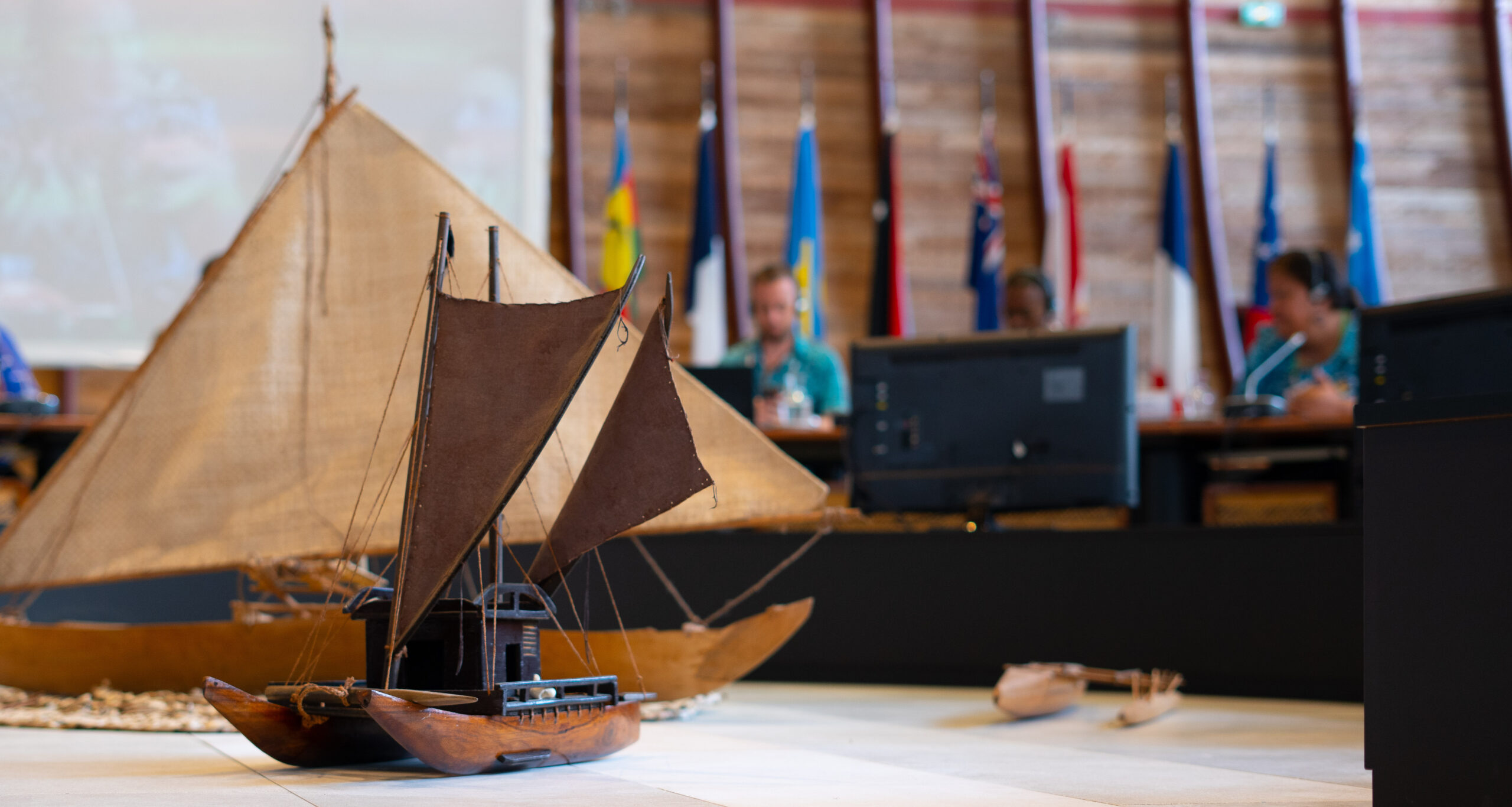
This Wednesday, November 30th, the OGS 2022 left the Nouvata Hotel to take over the auditorium of the University of New-Caledonia. Today’s programme included a series of four technical presentations on themes as diverse as they are essential for the Pacific region, and initiated by institutions, researchers, private companies and students. These presentations will provide a better understanding of the different tools available to address main regional issues. And since this Wednesday was placed under the sign of sharing and exchange, the OGS also organised a series of “speed meetings” to allow participants to better meet and strengthen their network.
Plenty of sharing and feedback
The OGS had set community and sharing as the key values of this 2022 edition and it must be said that this resolution was fully reflected in the series of four technical presentations organised in the auditorium 400 of the UNC. Indeed, these presentations gave each member of the community the opportunity to share with others their latest projects, methods and working tools, as well as to share their feedback on their use of geospatial data and EO. A day rich in lessons that proves once again that the latest technical and scientific innovations brought to this discipline will indeed allow us to better respond to the major – and common – challenges of all PICTs.
These four thematic sessions focused on various fields of study that are crucial for the region. The first session focused on adaptation to global changes (erosion, drought, global warming, etc.), through the presentation of the latest tools available to report on them. After the now traditional morning coffee break, our participants were back in the auditorium to attend various interventions about Oceanian women in geospatial science. This was an opportunity to learn more about the journeys of inspiring figures such as Ms. Lomot Kristina Kisokau and Ms. Dorothy D. Pion (Papua New Guinea), Ms. Darlynne Takawo (Republic of Palau), Ms. Marawa Rusukerekere (Fiji), and Ms. Rima Browne (Cook Islands).
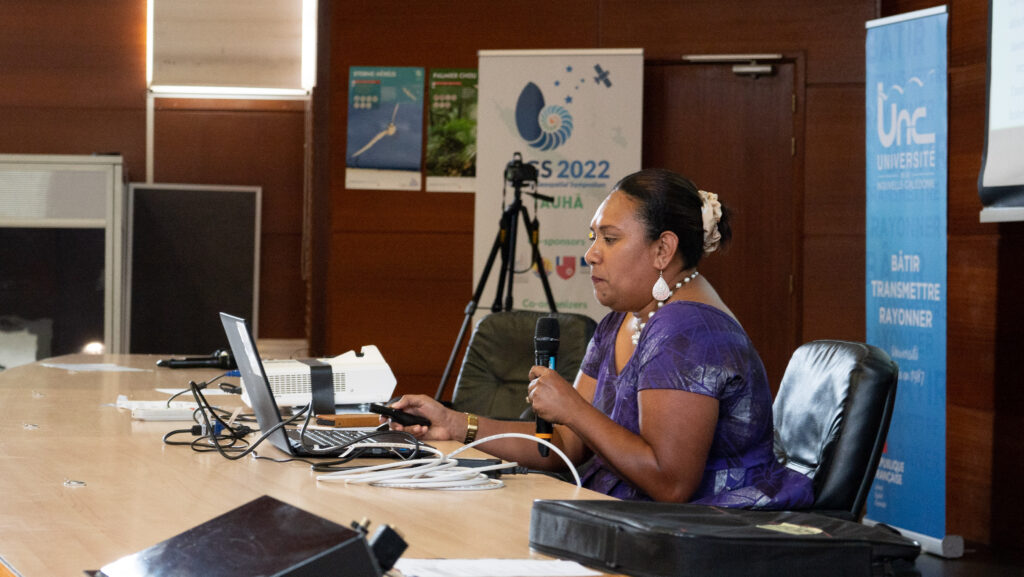
Building the community and strengthening the participants’ network
The programme resumed in the early afternoon with a third session devoted to natural resources management, ecosystem services and biodiversity. Here again, some very technical presentations were offered by speakers from the IRD, the WWF, the Southern Province of New Caledonia, and the University of French Polynesia. These speakers shared some of their findings on wetlands, coral atolls, mangroves and fire monitoring. The day ended with a final session on maritime space awareness, with presentations by the New Caledonian government, the Pacific Community and private companies (Airbus, Island Robotics, etc.).
However, these technical presentations were not all that the OGS had planned to take advantage of the University of New Caledonia’s setting. In the beautiful university’s library, networking workshops in the form of speed meetings were organised. Participants who wished to take part could meet for individual or group meetings in specially designated areas. This initiative once again underlines the desire to federate a strong Pacific geospatial community around the OGS and to promote synergies between countries.
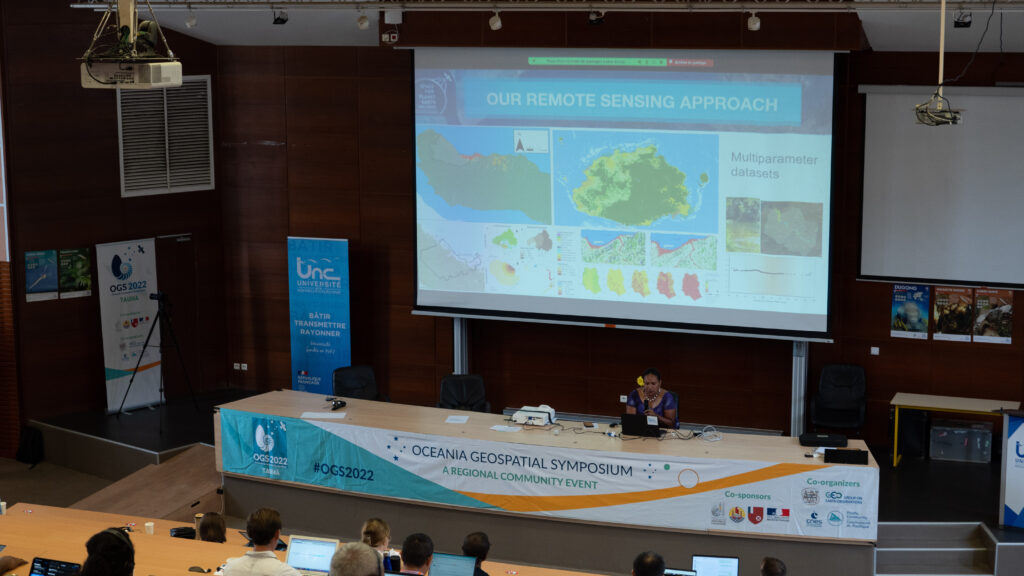
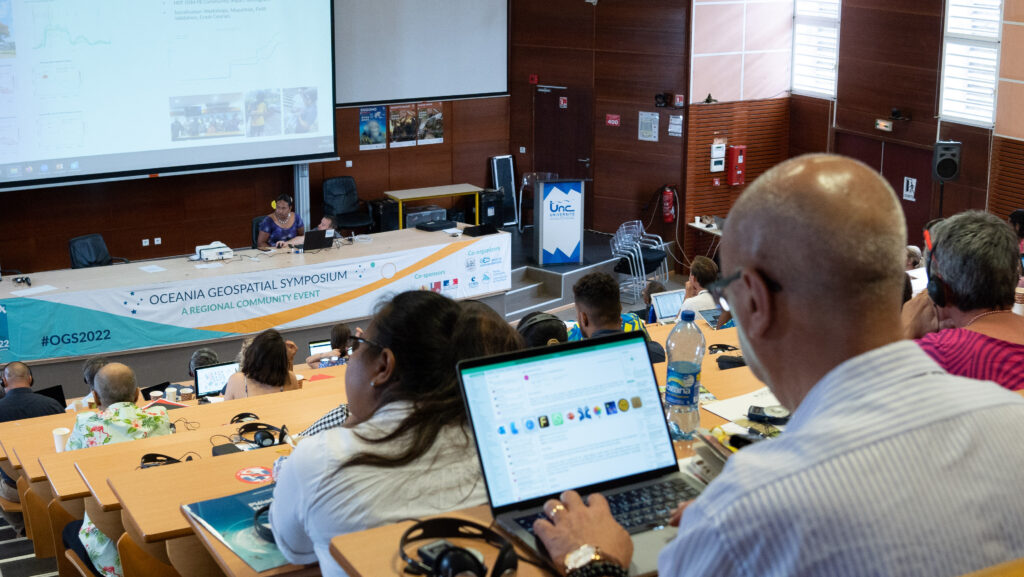
Thursday’s programme: between the UNC and the SPC, the OGS is speeding up
The OGS is in full swing! This Thursday, December 1st, the event’s schedule was divided between the continuation and end of plenary sessions at the University of New Caledonia (UNC) and a day of group discussions at SPC. There, the participants were invited to brainstorm on the future of the Pacific Islands Advisory Group (PIAG). Presenting results, sharing experiences and strengthening the involvement of PICTs in GEO were on the agenda!
Continuation and end of the plenary sessions at UNC
After the first four sessions organized throughout yesterday, UNC’s auditorium once again hosted a series of technical presentations by institutions, researchers, associations and private companies from the Pacific region. This was an opportunity for speakers to present their work to the community and also to discuss how the use of geospatial data and Earth Observation tools can provide answers to major common issues shared by PICTs.
The first session of the day was devoted to projects based on radar (SAR) satellite imagery. Representatives from IRD in New Caledonia, SPC, CSIRO and the University of Wellington in New Zealand took the floor to explain recent developments in space-based radar remote sensing techniques and the opportunities that arise from them. This was a moment to discover how this technology contributes to studies related to climate change, gully erosion impairing the water quality of the Great Barrier Reef or even habitat mapping in the Amazon, among other examples.
After an initial break, the morning continued with another session, this time focusing on telecommunications and mobility. Speakers from Caledonian startup INSIGHT and from OPT in New Caledonia addressed topics such as the Internet of Things (IOT), the role of Geographic Information Systems (GIS) for telecommunications and the use of databases for aviation. Finally, the UNC plenary sessions closed with two hours dedicated to spatial data infrastructures and with several examples of projects using them in the Pacific!
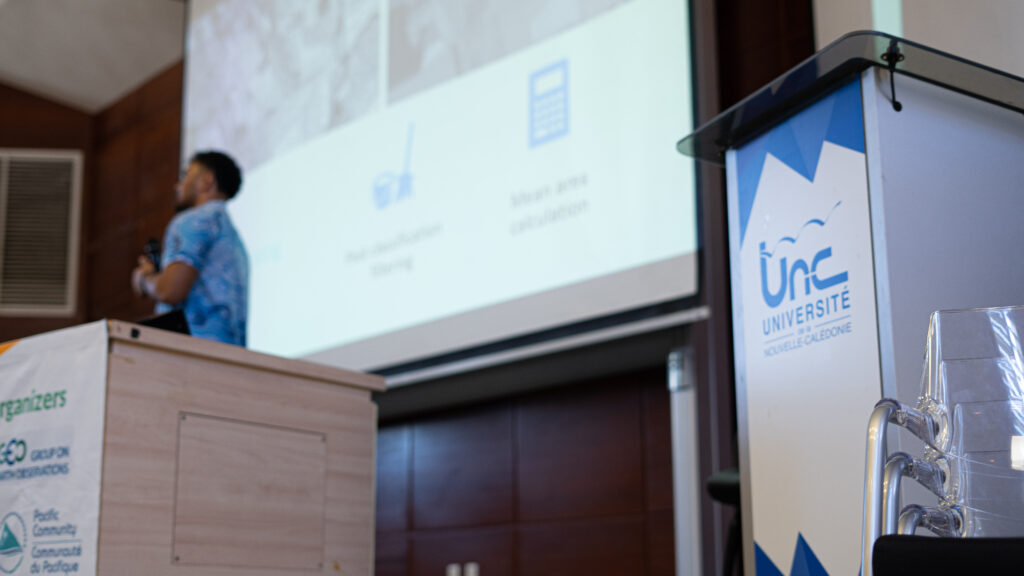
Focusing on the future of PIAG at SPC
In addition to these sessions at UNC, the OGS was also based at SPC for the day! There, panel discussions were organized, aiming to develop the strategy for engaging PICTs in the Group on Earth Observations (GEO). The GEO community uses Earth observation data about our planet to drive sustainable and inclusive growth. The Pacific Islands Advisory Group (PIAG) was established in 2020 to ensure that PICTs can fully benefit from the services and knowledge of the GEO community.
The purpose of the workshops held at SPC on Thursday was therefore to work on how to strengthen the links between PICTs and GEO, while determining the actions to be taken to the next GEO Ministerial Summit in 2023. Indeed, the OGS comes at a crucial time when, after almost two years of operation, the PIAG must determine its future direction. By bringing together the key players in the Pacific geospatial community to reflect on these upcoming milestones – but also by facilitating access to new Earth observation skills and techniques throughout the week – there is no doubt that the OGS has a key role to play in supporting the region’s efforts to meet the environmental challenges ahead.
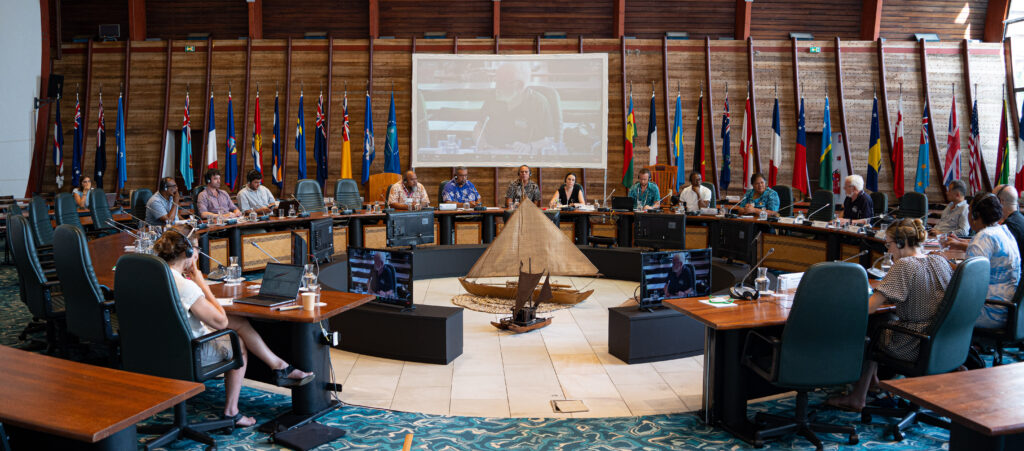
Visit to Station N
This Friday, the OGS will once again resume with its schedule at the university, focusing on the concrete implementation of useful projects for the region and on the resources to be mobilized to this end. Once these working sessions are over, the participants will head to Station N to discover this area dedicated to innovation and Caledonian startups. The evening will end with the official launch of the seventh edition of the Ocean Hackathon.